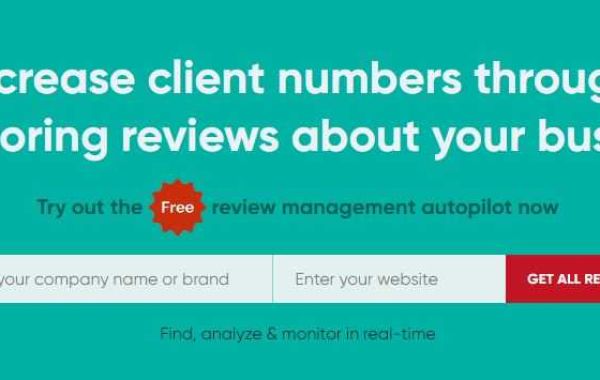In today's digitally driven world, it is essential for any business to consider its good online reputation. One major potential threat to this reputation is the rise of fake reviews. So, the guide will explain in detail the strategies for monitoring reviews and managing fake reviews that might restore your business into a trustworthy and credible one.
Understanding Fake Reviews
Kinds of Fake Reviews
Fake reviews come in different varieties but usually, with telling characteristics.
- Positive fake review: Placed to pad a business's rating, they tend to be effusively positive or overwhelmingly high on praise, with very little description, if any, about what makes the business so great.
- Negative fake review: Placed to damage the reputation of a specific competitor, they tend to be very vague and generally slandering or very critical, with no detail.
How Fake Reviews Affect a Business
The business-related effects of fake reviews are deep. The positive fake reviews mislead prospective customers to expect much more than what is being delivered, making the reality disappointing and a loss of trust because of those expectations. Negative fake reviews might send away potential customers and affect brand reputation, then financial loss. The presence of fake reviews can subvert the very value of credible real feedback, which otherwise such consumers could trust when eliciting online reviews.
Identifying Fake Reviews
Red Flags to Watch For
You need a keen eye and attention to detail to spot a fake review. Some of the red flags follow:
- Generic language and do not contain any specifics.
- Too many exclamation marks and superlatives.
- Profiles with scarce actions or those missing a profile photo.
- Reviews posted in a very short duration; likely to result from a review blitz.
- Overly negative or overly positive reviews that seem extreme or biased.
Common Patterns and Indicators
Many of the fake reviews tend to be similar. Check for clusters from new accounts or even accounts that only review one business. Take note of when the reviews were written: if a number of them have been posted almost simultaneously, that could reflect manipulation. Also, beware of reviews that don't fit a typical customer profile or geographic location for the business under consideration.
Tools and Technologies for Detection
- ReviewMeta and Fakespot are among the few modernizations available to analyze reviews and give them a score of trustworthiness based on numerous contributing factors.
- Machine learning can also be used for matching patterns and anomalies in the reviews data.
- Sentiment analysis: Many businesses nowadays do sentiment analysis to check the genuineness of reviews.
Handling Fake Reviews
Responding to Fake Reviews Professionally
It is very important to handle these fake reviews professionally and with courtesy. Properly acknowledge such reviews, express concern, and invite the reviewer to share their experience offline. This way, potential customers will also notice that you take feedback seriously and are committed to resolving issues. Never sound defensive or accusatory, as it will again ruin your reputation.
Reporting Fake Reviews
Almost all review platforms at least allowed mechanisms to report fake reviews. Go ahead to gather evidence for your case, maybe inconsistency with the reviewer's profile or if the history shows some suspicious activity. Submit a detailed report to the platform, explaining why you believe the review is fake. Be persistent, as platforms sometimes take a while to investigate and don't always take action.
Mitigating Damage from Fake Reviews
Various strategies can minimize the damage from fake reviews. Encourage satisfied customers to post honest reviews; these will dilute the fake reviews. On the website and social media, illuminate the positive responses being heard so that others, also viewing them, know you have credibility. If a seriously damaging review is against you, seek legal advice about exploring your rights.
Keeping Your Online Reputation Positive
Building a Robust Customer Feedback System
A firm customer feedback system will help support online reputation. Ask for comments through a follow-up questionnaire, by sending follow-up emails, or just by directly asking customers. Aggregate this information for product betterment. Share the changes with customers to make them feel valued. Responsiveness and transparency in everything you do should be the essence when it comes to building trust with your audience.
Encourage Real Reviews
Encourage authentic reviews by the customers in order to balance out fake reviews. Use methods of incentives, such as discounts or loyalty points, to get the customer to review your business. Provide ease of usage of tools and methods through which the customer would find it easy to review your business following excellent communique services with the customers: give links in such mailings; sending in the platform of the site for being reviewed. Always ensure that incentives comply with platform guidelines to avoid penalties.
Leveraging Social Proof
Use social proof to enhance your online reputation. Showcase testimonials and positive reviews either loudly on your website or in your marketing collateral. Share customer success stories and case studies to build trust. Engage in social media to show how good it feels interacting with satisfied customers.
Legal and Ethical Considerations
Understanding Legal Recourse
It's important to understand your legal recourse when dealing with fake reviews. However, in some cases, it is possible to take action against what has been said by a person or entity. Check with a legal professional to understand your rights and the potential redress. Legal action should always be a last-ditch solution after prior options have proven unsuccessfully satisfactory.
Ethical Guidelines for Review Management
Review management requires strict ethical guidelines to be followed. Never leave fake reviews or ask others to do so on your behalf. Always be forthcoming about review-based incentives and make every effort to avoid impacting what is written in the review. Stick to your word on integrity with customers and review sites to protect your credibility.
Future Trends in Review Management
AI and Machine Learning Applied to the Review Management
AI and machine learning are the bottom line when it comes to review management in the future. It dissects colossal data to hit the rock bottom and nil in on fake reviews. Predictive analytics enable businesses to even predict review fraud beforehand and act accordingly. As AI is constantly developing, this process will surely become important so that the results of online reviews are accurate in the future.
Evolving Consumer Behaviors
Consumer behaviors are always shifting, influenced by fast-paced technological advancement and changing societal norms. Businesses must keep in mind this change in order to protect their online reputation. Since a higher level of transparency is paramount for the majority of consumers at present, the presence of a business online or on social media becomes a necessary business.
Conclusion
A positive online reputation, in light of fake reviews, requires an intense commitment to vigilance, strategic planning, and practice with strict ethical liabilities. Understanding the recognition and handling of fake reviews helps business calm the reputation before their existing customers. Next, embrace the future trends and technologies, which would transform the presence online into wholesome and credible.
FAQs
What signs say a review is fake?
Some indicators of fake reviews are generic language, lack of specific details, excessive use of exclamation marks, and profiles with little activity, as well as a lot of reviews posted in quick succession. Other patterns are clusters of reviews from new accounts or reviews not fitting the customer demographics.
How can businesses report fake reviews?
Places of businesses are further allowed to report instances of fake reviews. They may need evidence, such as an anomaly or perhaps some suspicious kind of account activity; subsequently, a good report concerning the same is to be sent to the review platform in question. Most platforms have in-built arrangements under which they can look through fake reviews and remove them, but businesses also need to be tenacious because it can be a time-consuming process.
What types of tools are there to detect fake reviews?
Some of these tools are sites like ReviewMeta and Fakespot. These tools analyze reviews and output trust scores, while some machine learning algorithms and sentiment analysis tools help them sniff out isolated fake reviews by tracing patterns and anomalies in the review data.
Why is it important to respond professionally to fake reviews?
Replying professionally to fake reviews showcases the devotion to customer satisfaction and helps preserve credibility. A polite and constructive answer reassures future prospects that the company respects their repeated right to be heard.
What are ways businesses can encourage authentic reviews?
Businesses can encourage authentic reviews by offering incentives, such as discounts or redemptions of loyalty points, making ease of leaving reviews, and ensuring compliances with platform guidelines. Direct requests through follow-up emails and surveys can also be effective.
Which are the legal remedies that could be followed for fake reviews?
The legal recourses businesses have against fake reviews differ based on the jurisdictions. A business can, at times, take recourse to litigation in response to defamatory or false reviews posted by any individual or entity. Legal advice from a business lawyer might give the business insights regarding its rights and pros and cons of potential remedies.








